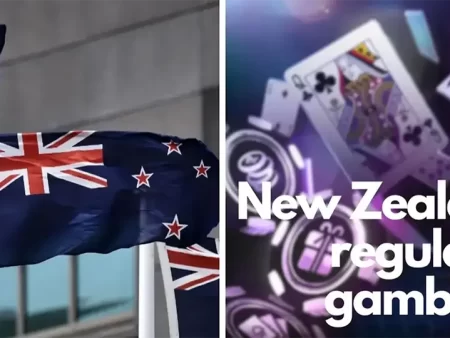The UK’s gambling advertising regulations have come under intense scrutiny following a controversial video featuring adult film star Bonnie Blue. The video, which prominently promoted the gambling company Stake.com, sparked outrage after campaigners raised concerns about its explicit content and potential targeting of young audiences.
In response, advocacy groups have written to Culture Secretary Lisa Nandy, urging her to take immediate action against what they describe as “pornographic” gambling ads circulating on social media platforms. The controversy has fueled calls for tighter regulations on gambling-related marketing, particularly concerning its portrayal of sexual content and its accessibility to younger demographics.
The Controversial Advertisement

Apacaff | The video in question was posted on social media platform X (formerly Twitter) in December 2024. In the footage, Bonnie Blue, a well-known adult film actress, is seen discussing explicit sexual encounters with “barely legal 18-year-olds” at Nottingham University. Throughout the clip, the Stake.com logo appears prominently on-screen, raising significant ethical and legal concerns.
Critics argue that the advertisement’s sexually explicit nature, combined with its association with a gambling brand, could contribute to irresponsible marketing practices and potentially influence younger audiences. The fact that it appeared on social media—where users of various age groups can access content—has only intensified concerns about its reach and impact.
While the ad was not posted from Stake.com’s official account, it was shared by an account claiming to be affiliated with the gambling company. However, the true nature of this affiliation remains unclear. It is uncertain whether Bonnie Blue was directly involved in the ad’s production or whether the footage was repurposed by third-party marketers. Regardless of its origins, the video has since been removed, but its backlash continues to put Stake.com and Its Role in UK Gambling
Stake.com, a gambling company headquartered in Australia, has positioned itself as the “world’s leading cryptocurrency casino and sportsbook.” Unlike traditional betting platforms, Stake.com allows users to place bets using digital currencies such as Bitcoin and Ethereum, making it a prominent player in the growing crypto-gambling industry.
Despite its global reach, Stake.com has made significant inroads into the UK market. One of its most notable partnerships is with Everton Football Club, where it serves as the team’s main shirt sponsor. This association has helped the company establish brand recognition among UK sports fans, particularly in the Premier League audience.
However, Stake.com’s presence in the UK operates under a white-label agreement with TGP Europe, an Isle of Man-based company. White-label agreements are a common practice among international gambling firms, allowing them to use an existing license holder’s credentials to operate in a new market. While this strategy provides foreign companies with an easier entry into regulated territories like the UK, it has also drawn criticism for enabling businesses to bypass direct regulatory scrutiny.
Regulatory Response and Calls for Action
Following the emergence of the controversial advertisement, Will Prochaska, a leading advocate from the Coalition to End Gambling Ads, has written to Culture Secretary Lisa Nandy, demanding stricter oversight of gambling promotions. In his letter, Prochaska urged the government to push the UK Gambling Commission to take enforcement action against Stake.com, accusing the company of using “sexualized content involving a pornographic actress to market gambling to young audiences on social media.”
Regulatory authorities have taken notice of the situation, with the Advertising Standards Authority (ASA) confirming that it has received multiple complaints about Stake.com-related advertisements. These complaints extend beyond the Bonnie Blue video, as there have been allegations that Stake.com affiliates have been repurposing viral content—including clips of adult film stars and sports highlights—by adding the company’s branding to them.
An ASA spokesperson commented on the ongoing review, stating:
“We are currently evaluating these complaints to determine whether there are grounds for further regulatory action. Some jurisdictional aspects must also be considered, and certain elements may be referred to the Gambling Commission where appropriate.”
The ASA’s investigation will determine whether Stake.com or its affiliates have breached UK advertising rules, particularly those that govern gambling promotions. If the company is found to have violated regulations, it could face penalties or further restrictions on its advertising practices.
Concerns Over UK Gambling Regulations
The controversy surrounding Stake.com’s marketing strategies has reignited broader concerns about the UK’s gambling regulations. Critics argue that the current system, which allows foreign gambling firms to operate under white-label agreements, lacks sufficient oversight and transparency.
Under this model, companies like Stake.com do not directly obtain a UK gambling license but instead rely on an existing license holder—such as TGP Europe—to run their operations. While this approach offers a streamlined entry into the UK market, it also raises accountability issues. Unlike fully licensed UK gambling operators, foreign firms using white-label agreements do not undergo the same level of scrutiny regarding their business practices, advertising ethics, and consumer protections.
TGP Europe, the company responsible for Stake.com’s UK operations, has previously faced regulatory action. In 2023, the UK Gambling Commission fined TGP Europe £316,250 for failing to comply with anti-money laundering regulations and social responsibility guidelines. This past infraction has only added to concerns about whether such entities are being held to the same standards as UK-based gambling operators.
In his letter, Prochaska highlighted these concerns, stating:
“This system enables foreign gambling businesses like Stake to bypass UK regulatory scrutiny by leveraging an existing license holder’s permissions, instead of obtaining their own license and being directly held accountable.”
As the debate over white-label agreements intensifies, industry watchdogs and campaigners are calling for reforms to ensure that all gambling firms operating in the UK, regardless of their origins, are subject to the same rigorous oversight.
Conclusion
The controversy surrounding Stake.com’s advertising tactics has put the spotlight on the UK’s gambling regulations, particularly in relation to digital marketing and social media promotions. With campaigners demanding action and regulatory bodies investigating complaints, the coming weeks could be crucial in determining whether stricter measures will be implemented to prevent similar incidents in the future.
As the UK Gambling Commission and ASA continue their reviews, the gambling industry may face increasing pressure to align with ethical advertising standards. Advocacy groups argue that without stronger enforcement, the risks of exposing young and vulnerable audiences to harmful gambling promotions will only continue to grow.
For now, Stake.com remains under scrutiny, and the outcome of this case could have lasting implications for how gambling advertisements are regulated in the UK moving forward.












